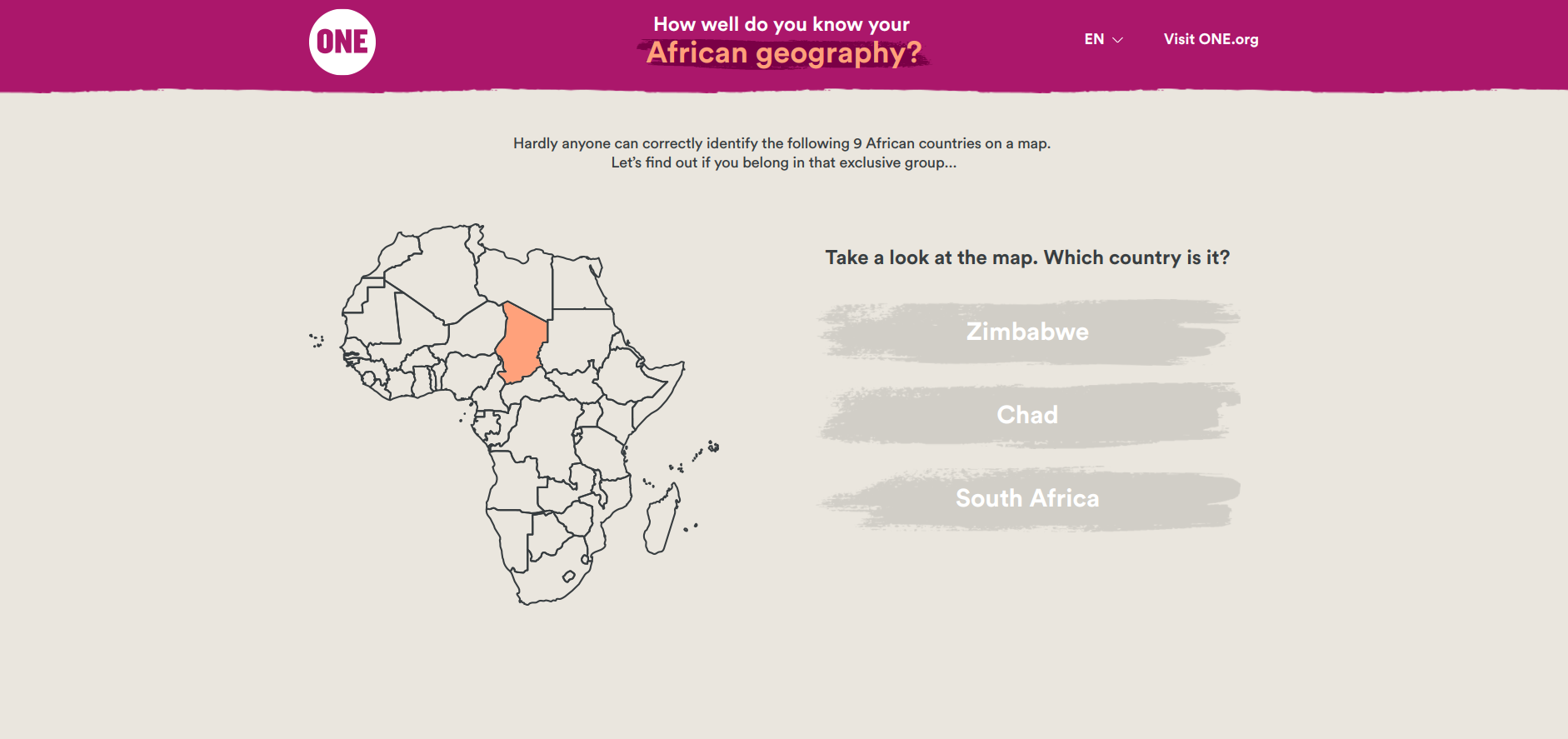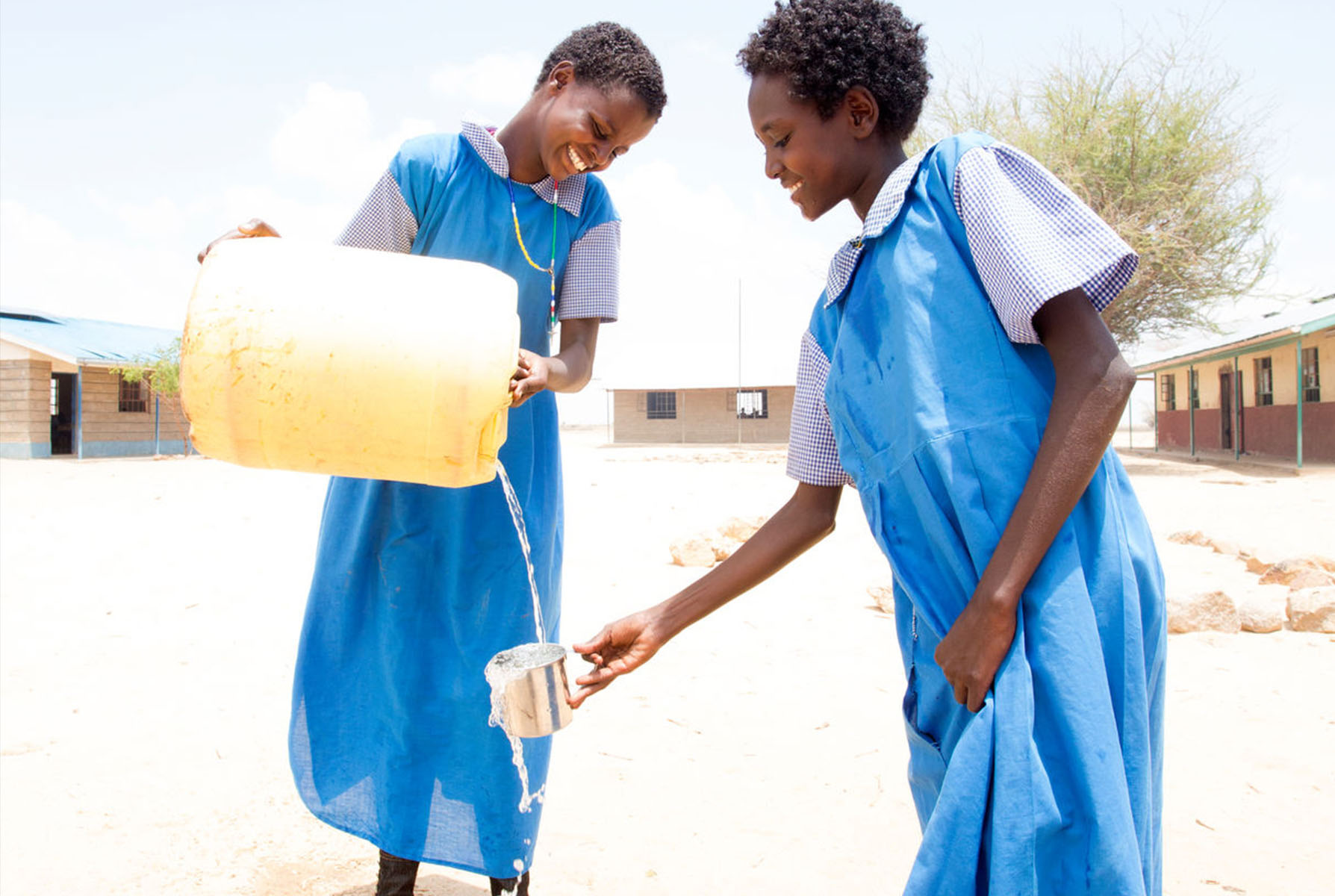The challenge:
With a collection of complex and sometimes inaccessible data as their starting point, ONE wanted to create a fun and engaging tool that would reach outside their traditional supporter base and inspire new audiences to join their campaign to get 130 million girls into school.
We identified a single, measurable goal as the project’s key priority: to get as many people as possible to sign ONE’s petition asking world leaders to increase funding for girls’ education. Each petition signer would subsequently join ONE’s campaigning network, growing the size of ONE’s email list of online activists. The tool was also going to be used in multiple countries, so we needed to make sure that the concept worked cross-culturally and was built in a way that could accommodate several different languages.
What we did:
To shape the tool, we decided to home in on a single powerful statistic that would resonate with as many people as possible. We learnt that, on average, girls in Guinea spend just seven months in school. This became the statistic which shaped our campaign messaging.
Next, we needed a hook. We decided to appeal to people’s sense of competitiveness. Who doesn’t like a friendly challenge to prove that they are more worldly or better at geography?
The end product was the highly shareable 9 Countries Quiz, which invited people to test their knowledge of African geography by guessing the names of nine countries, before linking these countries back to the issue of girls’ lack of access to education.
A number of strategic considerations underpinned our approach:
- We needed an idea that linked seamlessly into the campaign (otherwise the petition ask would jar and no-one would sign it) but was also widely accessible and shareable.
- We settled on the concept of a geography quiz because a) we thought the “hardly anyone can do this” framing would motivate people to click through and share to compare results with friends, and b) we felt geography knowledge was something that speaks a little to people’s identity, which would encourage sharing.
- We kept copy short, consistent, and easy to read. The design and user experience also need to be simple, with minimal clicking for the user.
- We asked people to sign the petition before providing them with their results – making the most of the time when the supporters were still engaged with the quiz (rather than after they’d got their result and were ready to leave).
- We made the petition signature optional so that people who didn’t want to sign could still share the page, bringing in more traffic to the quiz and increasing the overall number of new signatures generated.
Results:
A few days before International Day of the Girl, the ONE campaign put out a very small Facebook ads campaign to test the page – and it took off, quickly generating thousands of organic shares. In just 48 hours, 1.8 million people worldwide had clicked through to the quiz and ONE had added 375,000 motivated and engaged supporters to their email list.
To date, over 2.6 million people have completed the quiz, and half a million of them have now joined ONE’s campaigning network. This is a great example of how engaging, relevant content can promote organic sharing and broaden the reach of a campaign’s message.


